Halton Borough Council is leading the way with renewable energy with a 16.4 hectare solar farm on a former golf course, which is set to expand. And rangers are giving tours of the site.
The solar farm at St Michael’s is already powering the borough’s DCBL Stadium, as well as selling power back to the National Grid.
There are also plans to power the proposed leisure centre at Moor Lane in Widnes, with the Council considering the feasibility of extending the solar farm and connecting it to other council buildings.
Halton Borough Council’s Executive Board Member for Climate Change, Cllr Phil Harris, said: “Halton’s solar farm, built on former derelict brownfield land in Widnes, has now been running since August 2020; it has been powering the DCBL Stadium during this period.
“Reduced energy use at the stadium will help bring down the Council’s carbon footprint, saving around 120 tonnes of CO2 per year, and more than 3,000 tonnes of CO2 over the lifetime of the project. In addition the electricity used at the stadium will help to reduce the venue’s energy bills.
“The project is a clear demonstration of the Council’s ongoing ambitions to reduce our carbon footprint, helping to improve the environment for residents. ”
The one megawatt solar farm has more than 3,880 panels and will generate approximately 850,000kwh of electricity a year.
It is connected via a private wire to the DCBL Stadium which will use around 45 per cent of the energy generated, with the remainder exported to the grid.
The solar farm has generated approximately 650,000kwh so far and is on target to exceed its annual target. Given the pandemic and the closure of the DCBL Stadium for much of 2020 and early 2021, more energy had been exported to the National Grid than originally planned; this is expected to change in the second year.
To date the Stadium has used about 20 per cent of the energy, resulting in reduced running costs of approximately £14,000.
Two rangers have been funded to look after the maintenance of the site’s solar field and work to support the ecological assets that have developed after being left to nature for many years.
Rangers Chris and Alister have been running site visits for interested groups and there are more in the diary.
Cllr Harris continued “The input of the rangers on site have been integral to achieving these goals; they have been carrying out valuable work to develop the wider site and have been able to share their enthusiasm and knowledge with the wider community.
“We hope that the Eco Farm project can help inspire residents and show that small changes can contribute to the global challenges which Climate Change present’’
In December 2021 the rangers led two visits to the solar farm in partnership with David Heller, an engineering tutor from Riverside College, to provide Scottish Power apprentices with the opportunity to learn about St Michael’s Eco Park as a case study for a renewable energy project.
The students’ main interests were the technical aspect of the Solar Farm, and the site’s rangers were able to point out key components of the system and how it connects to the local and national grid.
The rangers linked this to the wider benefits of renewable energy and how the Solar Farm is helping the Council to lower their carbon footprint and minimize the impact of their operations on the environment.
Through organising the visits, the rangers have opened the door for future opportunities to work in partnership with the college and hope to maximise the educational potential of the site.
The project was part-funded from the European Regional Development Fund (ERDF) and the Council provided the remainder of the cost.

